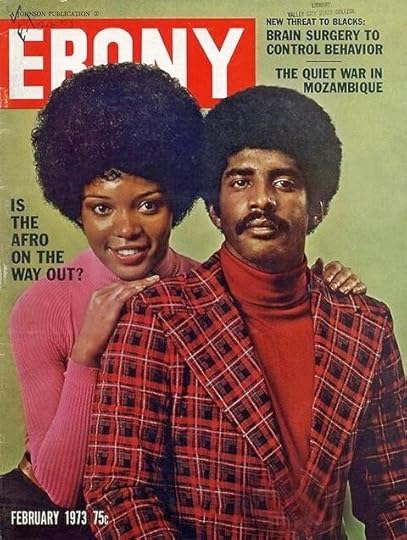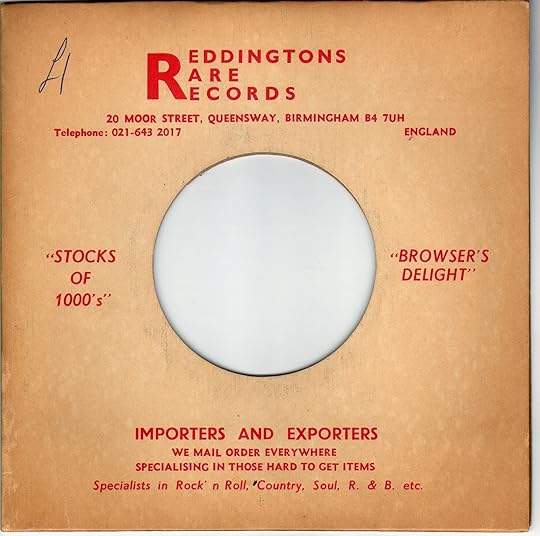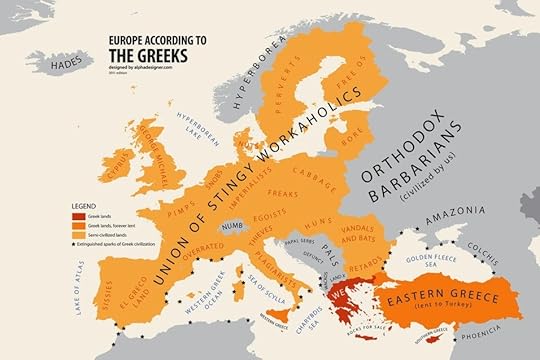Michael Gray's Blog, page 7
April 8, 2014
UPDATE - BOB DYLAN WEEKENDS
I'm pleased to say that the first of the two Bob Dylan Discussion Weekends on offer this autumn is now fully booked - just a few days after being announced - so now places are available for the October 3-5 weekend only. Details
here
.
Published on April 08, 2014 00:53
April 5, 2014
NEWS: BOB DYLAN DISCUSSION WEEKENDS
SATURDAY APRIL 5: I'm pleased to announce two new Bob Dylan Discussion Weekends here in South-West France this coming autumn/fall - the first in 18 months.Great food, great music, great location. As previously, places are limited to a maximum of six people per weekend and will be offered on a first-come-first-served basis. The dates are:September: Friday 12 to Sunday 14October: Friday 3 to Sunday 5
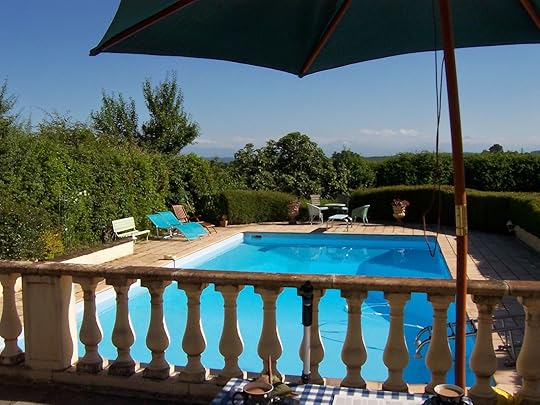
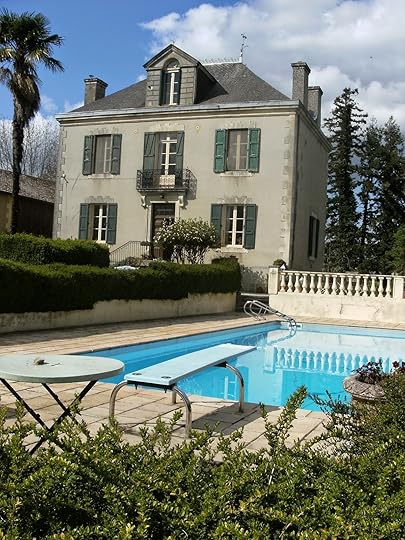 More info and booking details
More info and booking details

 More info and booking details
More info and booking details
Published on April 05, 2014 03:33
March 26, 2014
QUAINTNESS OF THE RECENT PAST NO. 38
Published on March 26, 2014 09:12
March 22, 2014
QUAINTNESS OF THE RECENT PAST NO. 37
Published on March 22, 2014 06:45
MAP NO. 24: EUROPE FROM A RABID GREEK PERSPECTIVE
Published on March 22, 2014 04:20
March 20, 2014
JOTTING DOWN NOTES: FRANK EDWARDS
I was lucky enough to meet and interview Georgia blues musician Frank Edwards not long before he died. I was researching the life of Blind Willie McTell, and they had been friends - or certainly acquaintances - in the 1930s. Aptly enough, I suppose, by the time I caught up with him in 2001, he was a regular in the Atlanta city bar called Blind Willie's. I wrote up our brief encounter in Hand Me My Travelin' Shoes: In Search of Blind Willie McTell but today (20 March 2014) being the 105th anniversary of Frank Edwards' birth, I reproduce the notebook pages written at the time - a small tribute to a likeable artist and man:
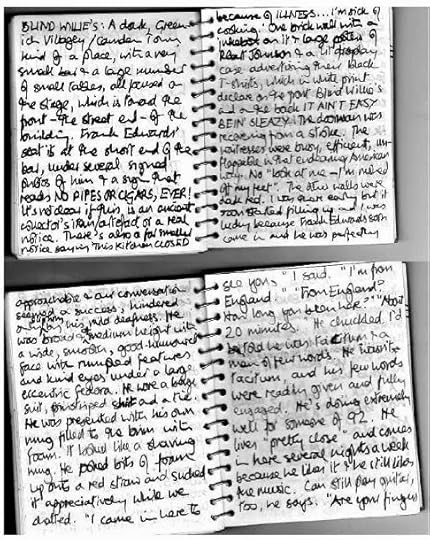
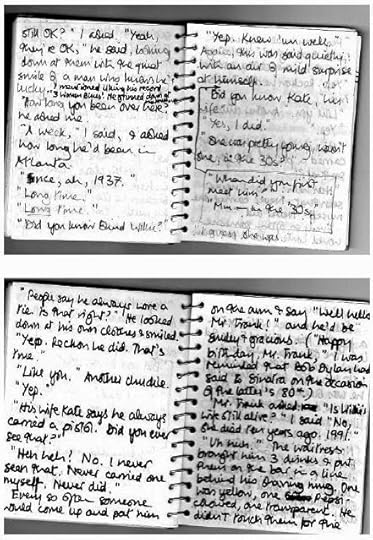
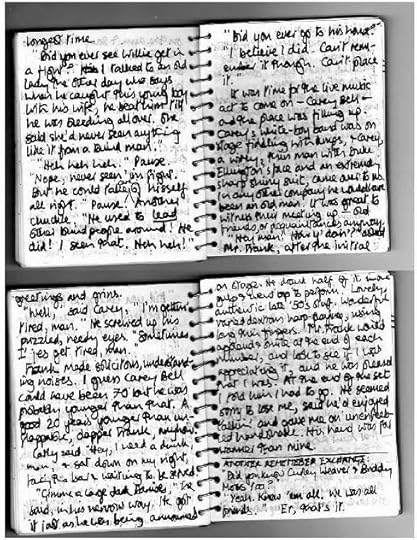 And here's that recording of Three Women Blues:
And here's that recording of Three Women Blues:
Carey Bell was actually 64 at the time of his appearance that night. Frank Edwards died in March 2002, Carey Bell in May 2007.


 And here's that recording of Three Women Blues:
And here's that recording of Three Women Blues:Carey Bell was actually 64 at the time of his appearance that night. Frank Edwards died in March 2002, Carey Bell in May 2007.
Published on March 20, 2014 07:24
March 15, 2014
TONY BENN KNEW MY GREAT-GRANDFATHER
I'm greatly saddened by news of Tony Benn's death: a great man and that very rare thing, a principled politician. I never met him, but in correspondence with his son Josh a few years ago, I learnt that we had a family connection - and that Tony, as a boy, knew my great-grandfather - a man notorious in their part of Essex. This is the story:
My great-grandfather was Robert Alexander Gray, a man who rose from cabin boy to Master Mariner, owned two significant houses and a London flat, bought a motor yacht as early as 1918, and seems to have had a nasty temperament. Here he is with my much put-upon great-grandmother on a camel somewhere around Karachi (which was still part of India at the time):
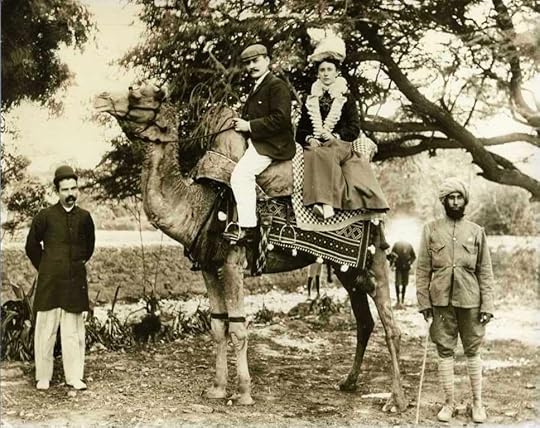 He is supposed to have been the first person in Cleadon (near Sunderland) to have owned a motor-car. I believe this was a Sunbeam, and that as a boy my grandfather had to polish it perfectly or else. This story was, for me, the foundation for Captain Gray's reputation as a bully.
He is supposed to have been the first person in Cleadon (near Sunderland) to have owned a motor-car. I believe this was a Sunbeam, and that as a boy my grandfather had to polish it perfectly or else. This story was, for me, the foundation for Captain Gray's reputation as a bully.
That last fragment was more or less all I knew of him until I started researching my family tree. Then I found that in 1918, at an auction in Newcastle, he'd bought a substantial early Victorian house in Alnick, Northumberland, called ‘Freelands’, which, puzzlingly, he sold in 1922, after less than four years of living in it. I never knew why, or where he went after that - and since Cleadon was once described to me as "the debtors' retreat", I assumed that he must have overshot himself and sold the Alnick property to restore his solvency.
However, one of the photos floating about has always been of my grandparents and my father standing at the front porch of another house, labelled 'Stansgate' on the back of the snapshot. My father is a toddler here, so this must have been around 1921. I never knew where this mysterious place was until - out of the blue on the evening of March 5, 2006 - I had an e-mail from Josh Benn, son of Tony, asking if I were related to Captain Robert Alexander Gray. His e-mail explained his interest but also provided a huge leap forward in my knowledge about this apparently atrocious great grandfather of mine.
He explained that his reason for asking if I were related to this Captain Gray was because the Benn family bought a house in Essex on the Blackwater Estuary (Stansgate Abbey House) from Capt. Gray’s widow in 1933. Josh's great grandfather had had the house built in the first place, in 1899, but it had passed out of the family until 1933 when Tony Benn's father, William Wedgwood Benn (the postwar Labour cabinet minister who was given the Viscouncy by Churchill in 1941 that Tony was to struggle to renounce), having spent four happy summers there at the turn of the century, bought the property back. (A property they still have to this day.)
This surprising e-mail explained the ‘Stansgate’ photo. And once I’d confirmed that I was both related and interested, Josh Benn e-mailed again to say that he was astonished "that we should re-discover this link after so many years. For my family – the Benn family – Capt. Gray was something of a legend and I grew up on the many stories of his time at Stansgate told to me by my grandmother."
Josh and I subsequently had a long phone call in which he told me that Tony had been delighted to hear he’d made contact with me, since Capt. Gray had indeed been a larger than life figure in his childhood and he had always remembered seeing that when the Grays’ furniture had been taken from the house when he was seven or eight - he was born in April 1925 - a number of pieces were of the sort that screwed to the floor (i.e. they were maritime furniture); but Josh also told me that the house had been built from a kit in 1899 by his great grandfather (rather a grand kit, given that the house was a three storey, double-fronted mock-tudor villa with thatched roof) and that his grandfather had spent a small number of happy summers there in his childhood.
He said too that Captain Gray figured in their family lore because he was such an unreasonable and intimidating person: that on his arrival in the area he had placed an advert in the local paper to say that he would not be held responsible for the debts of his wife and children. He also told me that the farmhouse was adjacent to an abbey that had originally been a 12th Century priory, and that my great grandfather had become so annoyed by visitors calling to ask to look at it that he had had it demolished!
The Benns would only ever visit when the Captain was away on business in London. Margaret, Tony's mother, writes about first encountering the Captain Gray household at Stansgate in 1926, in My Exit Visa: An Autobiography [Margaret Stansgate, London: Hutchinson, 1992]:
‘When parliament broke up for the summer recess [1926], William temporarily put his political anxieties behind him and we went to see Stansgate, the Benn family’s old seaside house. The visit had been planned while we were travelling through Syria. The wide open spaces of the desert had made William nostalgic for the flat terrain of the Essex coast, and so we had decided to visit the place where he had enjoyed many happy holidays as a boy.
‘We had been warned that the owner of Stansgate, Captain Gray, was an unsociable man, but that did not put us off. When Mrs Gray opened the door, William said: “I hope you don’t mind my calling. My father built this house in 1899 and I want to show it to my wife.” Mrs Gray was charmed and William went on to say: “I very much want to bring my mother down next weekend. We’ll stay in a hotel and call next Sunday.” There was a farmhouse in the grounds, and Lady Benn, not the type of woman to be intimidated by Captain Gray, even if his wife and children seemed to be in awe of him, said: “Now Captain Gray, I am going to ask you to let me have that house to rent for the summer for the use of the family.” We used the farmhouse as our holiday home until Captain Gray died, whereupon his widow, wanting smaller accommodation and no longer able to bear the expense of keeping the sea wall in good repair, moved into the farmhouse and sold Stansgate to us. It became our weekend home and played a great part in our lives. William loved going there and enjoyed teaching the boys to sail. We went down as soon as Parliament rose at the end of the week, sometimes on a Thursday evening. When William was a minister he would take his papers with him in the ministerial “red boxes” and work on them over the weekend.’
From 1927 until 1933 the Benns, therefore, were spending summers in the farmhouse on the land while Capt. Gray and family were in the main house. (In 1940 the house was requisitioned for use in the war effort. Towards the end of her life, Margaret had a self-contained flat within the house, where, Tony Benn wrote, ‘a veritable queue of descendants…came to see her.’ [‘An Appreciation’, p.235])
According to Josh, his grandmother and my great-grandmother got on very well; when my great-aunt Vera married, it was William Benn who gave her away; and Margaret continued to correspond with Vera for some time.
When I last heard from him, Josh was looking into his grandmother’s letters and intended to report further. He also had an account - I still haven't seen this - of another local woman’s remembrances of Captain Gray, from a 1977 interview.
My great-grandfather died at Stansgate, on January 19, 1930. He was only 58 years old - nearly ten years younger than I am now - and there's a touch of poetic justice, I suppose, in the cause of death stated on the certificate: he died of cerebral haemorrhage... and apoplexy.
My great-grandfather was Robert Alexander Gray, a man who rose from cabin boy to Master Mariner, owned two significant houses and a London flat, bought a motor yacht as early as 1918, and seems to have had a nasty temperament. Here he is with my much put-upon great-grandmother on a camel somewhere around Karachi (which was still part of India at the time):
 He is supposed to have been the first person in Cleadon (near Sunderland) to have owned a motor-car. I believe this was a Sunbeam, and that as a boy my grandfather had to polish it perfectly or else. This story was, for me, the foundation for Captain Gray's reputation as a bully.
He is supposed to have been the first person in Cleadon (near Sunderland) to have owned a motor-car. I believe this was a Sunbeam, and that as a boy my grandfather had to polish it perfectly or else. This story was, for me, the foundation for Captain Gray's reputation as a bully.That last fragment was more or less all I knew of him until I started researching my family tree. Then I found that in 1918, at an auction in Newcastle, he'd bought a substantial early Victorian house in Alnick, Northumberland, called ‘Freelands’, which, puzzlingly, he sold in 1922, after less than four years of living in it. I never knew why, or where he went after that - and since Cleadon was once described to me as "the debtors' retreat", I assumed that he must have overshot himself and sold the Alnick property to restore his solvency.
However, one of the photos floating about has always been of my grandparents and my father standing at the front porch of another house, labelled 'Stansgate' on the back of the snapshot. My father is a toddler here, so this must have been around 1921. I never knew where this mysterious place was until - out of the blue on the evening of March 5, 2006 - I had an e-mail from Josh Benn, son of Tony, asking if I were related to Captain Robert Alexander Gray. His e-mail explained his interest but also provided a huge leap forward in my knowledge about this apparently atrocious great grandfather of mine.
He explained that his reason for asking if I were related to this Captain Gray was because the Benn family bought a house in Essex on the Blackwater Estuary (Stansgate Abbey House) from Capt. Gray’s widow in 1933. Josh's great grandfather had had the house built in the first place, in 1899, but it had passed out of the family until 1933 when Tony Benn's father, William Wedgwood Benn (the postwar Labour cabinet minister who was given the Viscouncy by Churchill in 1941 that Tony was to struggle to renounce), having spent four happy summers there at the turn of the century, bought the property back. (A property they still have to this day.)
This surprising e-mail explained the ‘Stansgate’ photo. And once I’d confirmed that I was both related and interested, Josh Benn e-mailed again to say that he was astonished "that we should re-discover this link after so many years. For my family – the Benn family – Capt. Gray was something of a legend and I grew up on the many stories of his time at Stansgate told to me by my grandmother."
Josh and I subsequently had a long phone call in which he told me that Tony had been delighted to hear he’d made contact with me, since Capt. Gray had indeed been a larger than life figure in his childhood and he had always remembered seeing that when the Grays’ furniture had been taken from the house when he was seven or eight - he was born in April 1925 - a number of pieces were of the sort that screwed to the floor (i.e. they were maritime furniture); but Josh also told me that the house had been built from a kit in 1899 by his great grandfather (rather a grand kit, given that the house was a three storey, double-fronted mock-tudor villa with thatched roof) and that his grandfather had spent a small number of happy summers there in his childhood.
He said too that Captain Gray figured in their family lore because he was such an unreasonable and intimidating person: that on his arrival in the area he had placed an advert in the local paper to say that he would not be held responsible for the debts of his wife and children. He also told me that the farmhouse was adjacent to an abbey that had originally been a 12th Century priory, and that my great grandfather had become so annoyed by visitors calling to ask to look at it that he had had it demolished!
The Benns would only ever visit when the Captain was away on business in London. Margaret, Tony's mother, writes about first encountering the Captain Gray household at Stansgate in 1926, in My Exit Visa: An Autobiography [Margaret Stansgate, London: Hutchinson, 1992]:
‘When parliament broke up for the summer recess [1926], William temporarily put his political anxieties behind him and we went to see Stansgate, the Benn family’s old seaside house. The visit had been planned while we were travelling through Syria. The wide open spaces of the desert had made William nostalgic for the flat terrain of the Essex coast, and so we had decided to visit the place where he had enjoyed many happy holidays as a boy.
‘We had been warned that the owner of Stansgate, Captain Gray, was an unsociable man, but that did not put us off. When Mrs Gray opened the door, William said: “I hope you don’t mind my calling. My father built this house in 1899 and I want to show it to my wife.” Mrs Gray was charmed and William went on to say: “I very much want to bring my mother down next weekend. We’ll stay in a hotel and call next Sunday.” There was a farmhouse in the grounds, and Lady Benn, not the type of woman to be intimidated by Captain Gray, even if his wife and children seemed to be in awe of him, said: “Now Captain Gray, I am going to ask you to let me have that house to rent for the summer for the use of the family.” We used the farmhouse as our holiday home until Captain Gray died, whereupon his widow, wanting smaller accommodation and no longer able to bear the expense of keeping the sea wall in good repair, moved into the farmhouse and sold Stansgate to us. It became our weekend home and played a great part in our lives. William loved going there and enjoyed teaching the boys to sail. We went down as soon as Parliament rose at the end of the week, sometimes on a Thursday evening. When William was a minister he would take his papers with him in the ministerial “red boxes” and work on them over the weekend.’
From 1927 until 1933 the Benns, therefore, were spending summers in the farmhouse on the land while Capt. Gray and family were in the main house. (In 1940 the house was requisitioned for use in the war effort. Towards the end of her life, Margaret had a self-contained flat within the house, where, Tony Benn wrote, ‘a veritable queue of descendants…came to see her.’ [‘An Appreciation’, p.235])
According to Josh, his grandmother and my great-grandmother got on very well; when my great-aunt Vera married, it was William Benn who gave her away; and Margaret continued to correspond with Vera for some time.
When I last heard from him, Josh was looking into his grandmother’s letters and intended to report further. He also had an account - I still haven't seen this - of another local woman’s remembrances of Captain Gray, from a 1977 interview.
My great-grandfather died at Stansgate, on January 19, 1930. He was only 58 years old - nearly ten years younger than I am now - and there's a touch of poetic justice, I suppose, in the cause of death stated on the certificate: he died of cerebral haemorrhage... and apoplexy.
Published on March 15, 2014 12:23
March 12, 2014
BE MY BABY
In honour of the indefatigable Ronnie Spector's current
Beyond the Beehive tour
, here's some great footage from over 50 years ago, when even I was young, of the Ronettes performing a favourite of hers (and of so many people):
Published on March 12, 2014 03:17
March 6, 2014
BOB DYLAN'S 30TH ANNIVERSARY CONCERT
On the occasion of the footage being re-issued, this time in HD DVD & Blu-ray and with various extras - and almost 22 years after the retrospective event itself, here's the review I wrote for the British Daily Telegraph straight after the gig. I could wish the comments still applied about Bob's unwillingness to promote his own latest album in concert or see himself as part of the entertainment industry - but things have changed (and not only those things):
Columbia Records Celebrates the Music of Bob Dylan at Madison Square Garden on Friday night - with a huge roster of stars - must have puzzled Dylan more than the rest of those present.For four and a half years now his Never-Ending Tour has criss-crossed the back roads of America - with the odd diversion into Europe, South America and Hawaii - with Dylan cycling to work, playing small halls with his anonymous band, refusing to admit press photographers and avoiding any notion of promoting his latest releases. Most of the time, his record company doesn't even know where he is. In bizarre contrast, it was suddenly decreed from on corporate high that there was to be a Live Aid-Lennon Memorial type megabash to “celebrate" his 30th anniversary on the Columbia label. That he has not always been on Columbia, that they first signed him thirty-one years ago, and that the celebration has come seven months too late to mark the anniversary of his first release - none of this mattered either to the media machine selling the event to TV around the world or to the fans at the 4-hour-plus show. Many stars rumoured to be coming did not materialise - Paul Simon, Elvis Costello, Van Morrison - and there were conspicuous absentees - Joan Baez, Robbie Robertson - but there were plenty left, one act following another in impressively quick succession, serviced by roadies working like a pit-stop team and a house-band led by ex-Dylan guitarist G.E.Smith. John Mellencamp, loudly unexciting, Johnny Winter, louder and worse, Kris Kristofferson crunching through ‘I'll Be Your Baby Tonight' and the record-company president giving a speech - these were the lowlights. There were others whose sheer presence contributed authority and excitement: Johnny Cash, the man in the short black coat, and surprise guest Stevie Wonder. The younger acts were a very mixed bunch. Sophie B. Hawkins proved a pale pretender to Laura Nyro territory. Eddie Vedder from Pearl Jam gave a fine folkclub performance of ‘Masters of War' successfully transposed to the 20,000-seater venue, but the song sounded dated and pious. Mary-Chapin Carpenter, Shawn Colvin and Roseanne Cash were merely competent on ‘You Ain't Goin' Nowhere', while Tracy Chapman managed an odd mix of the powerful and cosy on an anthem with no obvious current applicability, ‘The Times They Are A-Changin''. Where were the real young interpreters? Where were Jason & The Scorchers and The Poster Children? The one comparative newcomer whose presence did create real electricity was Sinead O'Connor - and it was solely her presence that did it. Large parts of the crowd booed, laughably unmindful of the events of 1966 and with real hatred seething through the hall. It was a repulsive indictment of the mob mentality of stadium-rock events. Neil Young took over with a customarily robust performance. Georges Harrison and Thorogood, Chrissie Hynde, The Band, The O'Jays, Tom Petty, Ron Wood and Roger McGuinn all acquitted themselves well enough, but the heavyweight honours went to Lou Reed, choosing, to his credit, an obscure early-80s song, ‘Foot Of Pride', which was fierce and committed; the Clancy Brothers & Tommy Makem with a gloriously unrockist, moving ‘When The Ship Comes In', Clapton with a real reoccupation of ‘Don't Think Twice, It's Alright' as a churning blues; and Charles Dickens lookalike Willie Nelson, who was one of the oldest present and chose the newest song, 1989's great, and savagely apt, ‘What Was It You Wanted?' Then, at the end, after the ballyhoo, on came Bob Dylan - and with the feeling and deft intelligence that created this great sweep of musics and poetry, he chose ‘Song To Woody', stressing that he sees himself in a line of figures like Guthrie and Leadbelly: people who took their own roads and didn't serve the entertainment industry. A couple more songs - a solo ‘It's Alright, Ma' and a genuinely celebratory ‘My Back Pages' shared with an inner circle of compadres, an inevitably rabble-rousing finale with everyone ‘Knockin' On Heaven's Door' and in the final end a solo ‘Girl of the North Country': a poignant choice and a subdued performance no more attuned to the demands of the big media event than Dylan ever is. And next month he releases a new album. It doesn't have one Bob Dylan song on it, it's his first solo acoustic “product" in 28 years, and it's a mixture of folk ballads and pre-war country blues, with a Stephen Foster song and a nursery rhyme thrown in. Almost no-one who was at Madison Square Garden last Friday night will buy it, and Bob will be back in the small halls.
© Michael Gray, 1992.
Columbia Records Celebrates the Music of Bob Dylan at Madison Square Garden on Friday night - with a huge roster of stars - must have puzzled Dylan more than the rest of those present.For four and a half years now his Never-Ending Tour has criss-crossed the back roads of America - with the odd diversion into Europe, South America and Hawaii - with Dylan cycling to work, playing small halls with his anonymous band, refusing to admit press photographers and avoiding any notion of promoting his latest releases. Most of the time, his record company doesn't even know where he is. In bizarre contrast, it was suddenly decreed from on corporate high that there was to be a Live Aid-Lennon Memorial type megabash to “celebrate" his 30th anniversary on the Columbia label. That he has not always been on Columbia, that they first signed him thirty-one years ago, and that the celebration has come seven months too late to mark the anniversary of his first release - none of this mattered either to the media machine selling the event to TV around the world or to the fans at the 4-hour-plus show. Many stars rumoured to be coming did not materialise - Paul Simon, Elvis Costello, Van Morrison - and there were conspicuous absentees - Joan Baez, Robbie Robertson - but there were plenty left, one act following another in impressively quick succession, serviced by roadies working like a pit-stop team and a house-band led by ex-Dylan guitarist G.E.Smith. John Mellencamp, loudly unexciting, Johnny Winter, louder and worse, Kris Kristofferson crunching through ‘I'll Be Your Baby Tonight' and the record-company president giving a speech - these were the lowlights. There were others whose sheer presence contributed authority and excitement: Johnny Cash, the man in the short black coat, and surprise guest Stevie Wonder. The younger acts were a very mixed bunch. Sophie B. Hawkins proved a pale pretender to Laura Nyro territory. Eddie Vedder from Pearl Jam gave a fine folkclub performance of ‘Masters of War' successfully transposed to the 20,000-seater venue, but the song sounded dated and pious. Mary-Chapin Carpenter, Shawn Colvin and Roseanne Cash were merely competent on ‘You Ain't Goin' Nowhere', while Tracy Chapman managed an odd mix of the powerful and cosy on an anthem with no obvious current applicability, ‘The Times They Are A-Changin''. Where were the real young interpreters? Where were Jason & The Scorchers and The Poster Children? The one comparative newcomer whose presence did create real electricity was Sinead O'Connor - and it was solely her presence that did it. Large parts of the crowd booed, laughably unmindful of the events of 1966 and with real hatred seething through the hall. It was a repulsive indictment of the mob mentality of stadium-rock events. Neil Young took over with a customarily robust performance. Georges Harrison and Thorogood, Chrissie Hynde, The Band, The O'Jays, Tom Petty, Ron Wood and Roger McGuinn all acquitted themselves well enough, but the heavyweight honours went to Lou Reed, choosing, to his credit, an obscure early-80s song, ‘Foot Of Pride', which was fierce and committed; the Clancy Brothers & Tommy Makem with a gloriously unrockist, moving ‘When The Ship Comes In', Clapton with a real reoccupation of ‘Don't Think Twice, It's Alright' as a churning blues; and Charles Dickens lookalike Willie Nelson, who was one of the oldest present and chose the newest song, 1989's great, and savagely apt, ‘What Was It You Wanted?' Then, at the end, after the ballyhoo, on came Bob Dylan - and with the feeling and deft intelligence that created this great sweep of musics and poetry, he chose ‘Song To Woody', stressing that he sees himself in a line of figures like Guthrie and Leadbelly: people who took their own roads and didn't serve the entertainment industry. A couple more songs - a solo ‘It's Alright, Ma' and a genuinely celebratory ‘My Back Pages' shared with an inner circle of compadres, an inevitably rabble-rousing finale with everyone ‘Knockin' On Heaven's Door' and in the final end a solo ‘Girl of the North Country': a poignant choice and a subdued performance no more attuned to the demands of the big media event than Dylan ever is. And next month he releases a new album. It doesn't have one Bob Dylan song on it, it's his first solo acoustic “product" in 28 years, and it's a mixture of folk ballads and pre-war country blues, with a Stephen Foster song and a nursery rhyme thrown in. Almost no-one who was at Madison Square Garden last Friday night will buy it, and Bob will be back in the small halls.
© Michael Gray, 1992.
Published on March 06, 2014 03:04
February 28, 2014
MORRISSEY UP YOUR ARSENAL AGAIN
Morrissey's album Your Arsenal has been re-released over twenty years after its first appearance. Here's what I wrote about it not long after that initial release (for a talking-head piece on the BBC World Service):
The spokesperson for the young, fey dispossessed was already 33 years old, and had been a solo artist longer than The Smiths survived, by the time he made Your Arsenal, his fourth solo album, released in 1992. This was made with the late British guitar ace Mick Ronson as producer: a curious, possibly beguiling choice. Ronson was a Mormon and a generation older than Morrissey, a 1960s rocker in appearance yet with a CV dominated by his time with the very 1970s David Bowie of The Man Who Sold The World. He had also co-produced Lou Reed’s Transformer album, been lead guitarist on Bob Dylan’s Rolling Thunder Revues and prominent on Dylan’s Hard Rain album.
The upshot, on Your Arsenal, is a Morrissey with a heavier sound and an almost perverse denial of emphasis on the lyrics.
From ‘You’re Gonna Need Someone On Your Side’ you might think punk has won out, after all, over the shy postmodernist who had spent the 1980s espousing celibacy, telling us “Meat Is Murder” and generally voicing the luxuriant romanticism of the lonelier and purer than thou.
He hasn’t really changed. “I wanted,” he said, “to make as physical a record as I possibly could, instead of constantly being curled up in a little ball at the foot of the bed” - but asked if the cover shot of him, shirt open to the waist, is meant to be sexy, it’s typical that he should reply “Really, what would be the point?” Most of the album captures the Morrissey of that retort.
It also captures his lovely voice, the one that seems to come from having his head in the clouds, up in a forlorn and plaintive ether. Morrissey sings like the thinking person’s P.J.Proby, while evoking a T.S.Eliot England of foggy streets and unrequited love endured in grimy rooms with mugs of tea.
Rarely has angst been so sumptuous. Even on a track as vaudeville-jolly as ‘Certain People I Know’, Morrissey still expresses his gloomy absolutes: singing, for instance, that “They’d sacrifice all, all their principles for anything that’s cashable”, to which, typically, he adds the deliberately feeble line “I do believe it’s terrible” - a wry self-mockery parading his feeling of helplessness in the face of these people he’s up against.
A reviewer in Q magazine claimed that this album “easily stands comparison with the best of The Smiths”, adding that at least he's no longer “whingeing about having to go to the launderette.” Nonsense. We value the side of Morrissey that whinges about going to the launderette: it’s the slice of life rock music forgets. And this album does not compare with the best of The Smiths.
There is nothing to match the intensely personal rendering of time and place and struggle found in the 1985 song ‘Pretty Girls Make Graves’: “End of the pier, end of the bay / You tug my arm and say ‘Give in to lust, / Give up to lust, oh heaven knows we’ll soon be dust”. Nor is there any equal to individual lines like “I’ve called to wish you an unhappy birthday” or “Well I was looking for a job and I’ve found a job and heaven knows I’m miserable now”. Nothing matches the first solo album’s ‘Late Night, Maudlin Street’, nor the second’s ‘Interesting Drug’.
But the Morrissey of Your Arsenal still comes drooping into your room like some elegant young wastrel who should make you tell him to pull his socks up. You don't - because he remains the first to confess his own hopelessness, and because underneath, there just might still shine his stubborn, intelligent ardour for a better world._______Mick Ronson died of liver cancer the year after Your Arsenal. Morrissey kept on keeping on.
The spokesperson for the young, fey dispossessed was already 33 years old, and had been a solo artist longer than The Smiths survived, by the time he made Your Arsenal, his fourth solo album, released in 1992. This was made with the late British guitar ace Mick Ronson as producer: a curious, possibly beguiling choice. Ronson was a Mormon and a generation older than Morrissey, a 1960s rocker in appearance yet with a CV dominated by his time with the very 1970s David Bowie of The Man Who Sold The World. He had also co-produced Lou Reed’s Transformer album, been lead guitarist on Bob Dylan’s Rolling Thunder Revues and prominent on Dylan’s Hard Rain album.
The upshot, on Your Arsenal, is a Morrissey with a heavier sound and an almost perverse denial of emphasis on the lyrics.
From ‘You’re Gonna Need Someone On Your Side’ you might think punk has won out, after all, over the shy postmodernist who had spent the 1980s espousing celibacy, telling us “Meat Is Murder” and generally voicing the luxuriant romanticism of the lonelier and purer than thou.
He hasn’t really changed. “I wanted,” he said, “to make as physical a record as I possibly could, instead of constantly being curled up in a little ball at the foot of the bed” - but asked if the cover shot of him, shirt open to the waist, is meant to be sexy, it’s typical that he should reply “Really, what would be the point?” Most of the album captures the Morrissey of that retort.
It also captures his lovely voice, the one that seems to come from having his head in the clouds, up in a forlorn and plaintive ether. Morrissey sings like the thinking person’s P.J.Proby, while evoking a T.S.Eliot England of foggy streets and unrequited love endured in grimy rooms with mugs of tea.
Rarely has angst been so sumptuous. Even on a track as vaudeville-jolly as ‘Certain People I Know’, Morrissey still expresses his gloomy absolutes: singing, for instance, that “They’d sacrifice all, all their principles for anything that’s cashable”, to which, typically, he adds the deliberately feeble line “I do believe it’s terrible” - a wry self-mockery parading his feeling of helplessness in the face of these people he’s up against.
A reviewer in Q magazine claimed that this album “easily stands comparison with the best of The Smiths”, adding that at least he's no longer “whingeing about having to go to the launderette.” Nonsense. We value the side of Morrissey that whinges about going to the launderette: it’s the slice of life rock music forgets. And this album does not compare with the best of The Smiths.
There is nothing to match the intensely personal rendering of time and place and struggle found in the 1985 song ‘Pretty Girls Make Graves’: “End of the pier, end of the bay / You tug my arm and say ‘Give in to lust, / Give up to lust, oh heaven knows we’ll soon be dust”. Nor is there any equal to individual lines like “I’ve called to wish you an unhappy birthday” or “Well I was looking for a job and I’ve found a job and heaven knows I’m miserable now”. Nothing matches the first solo album’s ‘Late Night, Maudlin Street’, nor the second’s ‘Interesting Drug’.
But the Morrissey of Your Arsenal still comes drooping into your room like some elegant young wastrel who should make you tell him to pull his socks up. You don't - because he remains the first to confess his own hopelessness, and because underneath, there just might still shine his stubborn, intelligent ardour for a better world._______Mick Ronson died of liver cancer the year after Your Arsenal. Morrissey kept on keeping on.
Published on February 28, 2014 09:08

